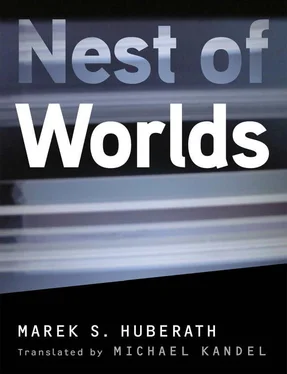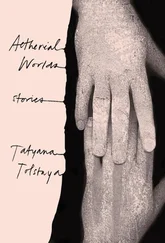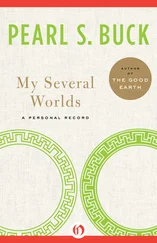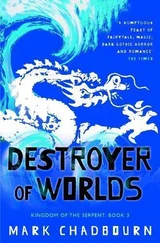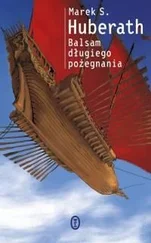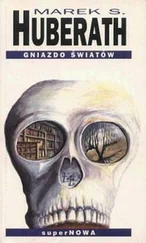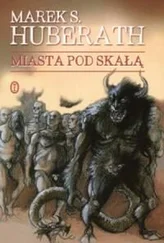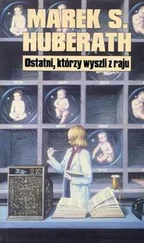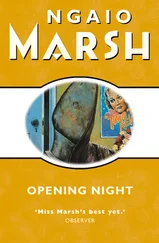So many flying machines lately have passed through my life, he thought.
The copter hovered above the street, kicking up clouds of dust. Gavein had to shield his eyes. Someone leaned out of an open bay, looked down, threw a rope ladder. It opened in a straightening line.
At first Gavein had difficulty climbing, because the end of the ladder kept pulling, turning him in the opposite direction. It was easier the higher he went, the weight of the rope below him stabilizing his position. He tried not to look down, to avoid becoming dizzy.
Finally, with the assistance of one of the crew, he entered the copter. Powerful and threatening at a distance, the craft seemed pitiful up close: dented, with surprisingly thin metal patches, chipped paint, and twisted struts.
Below flashed the colored lights of an ambulance. As the copter rose toward the zone of time retardation, the rooftops of Davabel stretched to the horizon. Among them, like isolated islands, were the higher buildings. The continent looked the same in every direction from the air.
The pilots in their mirror goggles and green helmets watched him, waiting for orders. Gavein gestured to them that they should move from over his house. The pilot at the controls made the machine hover above another street.
Gavein, looking down, felt no fear. With his belief that he was no more than a character in a story that was nested inside another world, and with his hope in the existence of an Index or Catalogue, he felt strangely disconnected from this reality.
To die quickly, he thought. Before time begins to dull in my memory the face of Ra Mahleiné…
“Just don’t play a joke on me and stop reading at this moment!” he called.
The pilots exchanged a look.
He took a deep breath and jumped, drawing in his arms and legs so that he would fall faster and the impact would be harder. The air beat at his face.
Doubts beat at him also. He had caused none of the deaths. If he had been in contact with the people who died, everyone in Davabel had been, because everyone lived in the same Land. Like a spiderweb of interconnections. Clearly each person was a nexus in that net.
He was Death? Nonsense.
Before his eyes flew faces, names: Bryce, Zef, Haifan, Max, Edda, Saalstein, Thompson, Lorraine, and dozens and dozens of others. How many people had come into contact with them? An endless number.
I’m dying for no reason. I solve nothing this way. People died, and they will continue to die. Not one death has broken the Rule of Names. Ra Mahleiné died not as an Intralla but as an Aeriella . Her melanoma, it was caused by sunlight.
Like a fanatic, I hastened my next incarnation, assuming that this one is not the last… It won’t help, I won’t meet Ra Mahleiné. There is no Superworld Zero, no Librarian in his Superworld Minus One, no Catalogue!
The cold thoughts sped through his brain.
I went paranoid, just like Wilcox. How can a man be Death? Death is a phenomenon, not a person. In another second, I’ll burst open like a worm. Paranoia, not the pattern of reality, led me to destroy myself!
He hit with tremendous force. There was silence, yet his consciousness was not extinguished. He felt a great but dull pain—he still lived.
“It didn’t work,” he groaned. “The president was right. Death cannot die.”
He tried moving one arm, then the other. Overhead was the darkening sky of a spring evening. The silence was complete. The copter had evidently flown away. Gavein could move his hands and feet freely, but something held him down. He turned to look: he had fallen on the roof of a car. The metal had buckled deep, breaking his fall and saving his life. But now it was a trap.
He couldn’t raise himself on his elbows, they were so badly bruised. But, wriggling his buttocks and using his hands, he was able to pull himself gradually out of the depression. He slid down the windshield and lay on the car’s hood. He cried out from the pain. He slid off the hood to the pavement. He could stand on his own, though his back felt as if someone had pulled its muscles apart with tongs.
He knew the place: this was the station wagon that Saalstein had used to drive him from the Division of Science. Gavein had returned in it to Ra Mahleiné, and now it saved his life, against his will, not allowing him to flee the world.
He waved an arm in disgust, and the wave brought more pain. He looked around, not knowing what to do.
“So you didn’t let me escape!” he said. “If only the epidemic of deaths would stop. But you are being read too. You know how to check now, observing the world around you.”
From a nearby doorway emerged a dark-violet cat. It looked at Gavein and, limping, ran to him.
“Roan? You’re Roan?”
The cat rubbed against one of his pant legs.
“Did I make it into the Catalogue after all?”
Gavein looked closer: the cat was missing its front left paw and also a piece of ear. But was it possible for a cat to be so violet?
“Roan?”
The cat retreated a couple of steps and blinked at Gavein.
I don’t recall, Gavein thought, that there were such pretty buildings here. And the colors of the stucco are so rich. And the sidewalk so clean, the seams in it so even.
“I’m to follow you, cat?”
The cat turned, rubbed against Gavein’s cuff, and again retreated. It was waiting for Gavein to limp after it. Bored, it yawned, showing its little tongue.
“Where are you taking me, cat? Is this the Catalogue?”
The cat started walking, every now and then turning and blinking at Gavein. It took an avenue westward.
Gavein squinted at something in the distance. The setting sun shone right into his face.
Is that an armchair on the sidewalk? Is someone sitting in it, and is that a group of people standing around it?
He couldn’t quite see, as much as he strained his eyes.
He walked so fast, the lame cat had trouble keeping up with him.
MAREK S. HUBERATH has been a major figure in contemporary Polish science fiction since his debut in 1987 with the short story “Wrocieeś Sneogg, wiedziaam…” (recently translated into English by Michael Kandel as “ Yoo Retoont Sneogg, Ay Noo…” and anthologized in Kandel’s A Polish Book of Monsters [2010, PIASA Books]). Nest of Worlds is his first novel to appear in English.
Huberath has split his efforts between novels and short fiction since, in both the science fiction and fantasy genres. Though he is a working scientist, his fiction explores moral and philosophical issues rather than technical possibility; a central concern is how his characters—human or otherwise—respond to extreme circumstances that challenge their ethical preconceptions.
Huberath has published three collections of stories: Ostatni, którzy wyszli z raju [ The Last to Leave Paradise ] (1996, Zysk i Ska), Druga podobizna w alabastrze [ Another Effigy in Alabaster ] (1997, Zysk i Ska), and Balsam długiego pożegnania (2006, WL; the title story has been translated into English by Michael Kandel as “ Balm of a long farewell”). The story “Kara większa,” from Ostatni, ktorzy wyszli z raju , has also been translated into English, as “The Greater Punishment” by Wiesiek Powaga, and is available in in The Dedalus Book of Polish Fantasy (Dedalus, 1996)
Huberath’s novels include Gniazdo światów (1999, superNova), translated by Michael Kandel as Nest of Worlds , Miasta pod skałą [ Cities Under the Rock ] (2005, 2011, Wydawnictwo Literackie), Vatran Auraio (WL 2010), and most recently, Portal zdobiony posagami [ A Portal Decorated with Statues ] (2012, Fabryka Slow).
Читать дальше
